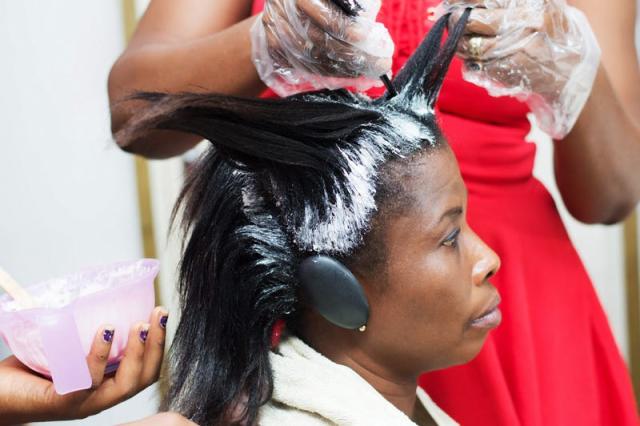In Nairobi, Kenya, Gloria Moraa recalls her first experience with hair relaxers at the age of eight. Sitting with a broken mirror in hand, she watched as her aunt applied chemicals to her hair, transforming her coily locks into straight strands. It was a tradition before Christmas, a time when many young girls sought matching hairstyles, embracing the trendiness of relaxers. Despite the discomfort and irritation caused by the chemicals, the allure of silky, straight hair prevailed.
Today, at 28, Moraa resides in Nairobi, alternating between faux locs and natural hairstyles. Reflecting on her years of using relaxers, she admits to prioritizing aesthetics over health concerns, unaware of the potential dangers lurking within the products. Like many Black women globally, Moraa was unaware of the growing body of evidence linking hair relaxers to serious health issues, including cancer.
In October 2022, the US National Institutes of Health (NIH) published a study revealing a correlation between frequent hair relaxer use and an increased risk of uterine cancer among women. This revelation sparked a wave of concern and activism among Black women in the United States, leading to numerous lawsuits against hair care manufacturers. Despite these developments, sales of relaxers continue to climb in African countries like Tunisia, Kenya, and Cameroon, indicating a stark contrast in awareness and consumer behavior.
The allure of chemically straightened hair for Black women is deeply rooted in societal standards of beauty, influenced by Eurocentric ideals that prioritize long, straight hair. However, the decision to relax one’s hair is not solely driven by aesthetics but also by factors such as manageability and social acceptance. This phenomenon is not limited to the United States but resonates throughout the African diaspora, shaping cultural norms and individual choices.
While awareness about the potential health risks associated with hair relaxers is growing, many Black women remain uninformed. A survey conducted in the United Kingdom revealed that 95% of Black women were unaware of the connection between relaxers and cancer. This lack of awareness underscores the importance of government regulations and corporate transparency in ensuring consumer safety.
The stories of women like Telichia Cunningham-Morris, who tragically lost her life to uterine cancer believed to be caused by hair relaxers, highlight the urgent need for accountability within the industry. Despite mounting evidence linking certain chemicals in relaxers to adverse health effects, regulatory measures remain inadequate, both in Africa and globally.
In the face of these challenges, a shift towards natural hair care is gaining momentum, particularly in the United States where sales of relaxers have been declining. The emergence of a vibrant natural hair movement offers a safer and more empowering alternative for Black women, emphasizing self-acceptance and embracing one’s natural beauty.
However, the journey towards embracing natural hair is not without its obstacles. Societal norms, media representation, and personal insecurities often perpetuate the allure of chemically straightened hair. Yet, pioneers like Julie Ouandji are challenging these norms, advocating for self-love and embracing natural hair textures through platforms like NappyFrancophones.




















